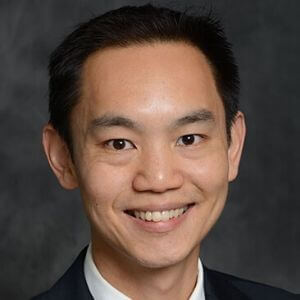A/Prof Trevor Chong is a neurologist and cognitive neuroscientist currently appointed as an ARC Future Fellow at the Turner Institute for Brain and Mental Health at Monash University. He leads the Monash Cognitive Neurology Laboratory, which aims to understand the neurobiology of learning, memory and decision-making in health and neurological disease. His lab adopts a multidisciplinary approach to achieve this goal, by integrating novel experimental paradigms with computational models of behaviour, functional neuroimaging, pharmacointervention, and brain lesion studies.
A/Prof Chong complements these more fundamental questions in cognitive neuroscience with clinical and translational work in neurodegenerative disease. He is a senior staff specialist at St Vincent’s Hospital Melbourne and Alfred Health; Chair of Research at the FightMND Foundation; and Chair of the Dementia Committee of a large clinical trial examining cognitive health in the elderly (STAREE). He is the current President of the Australasian Cognitive Neuroscience Society. A/Prof Chong’s research has been supported by fellowships and project funding by the NHMRC, ARC and multiple philanthropic schemes.

